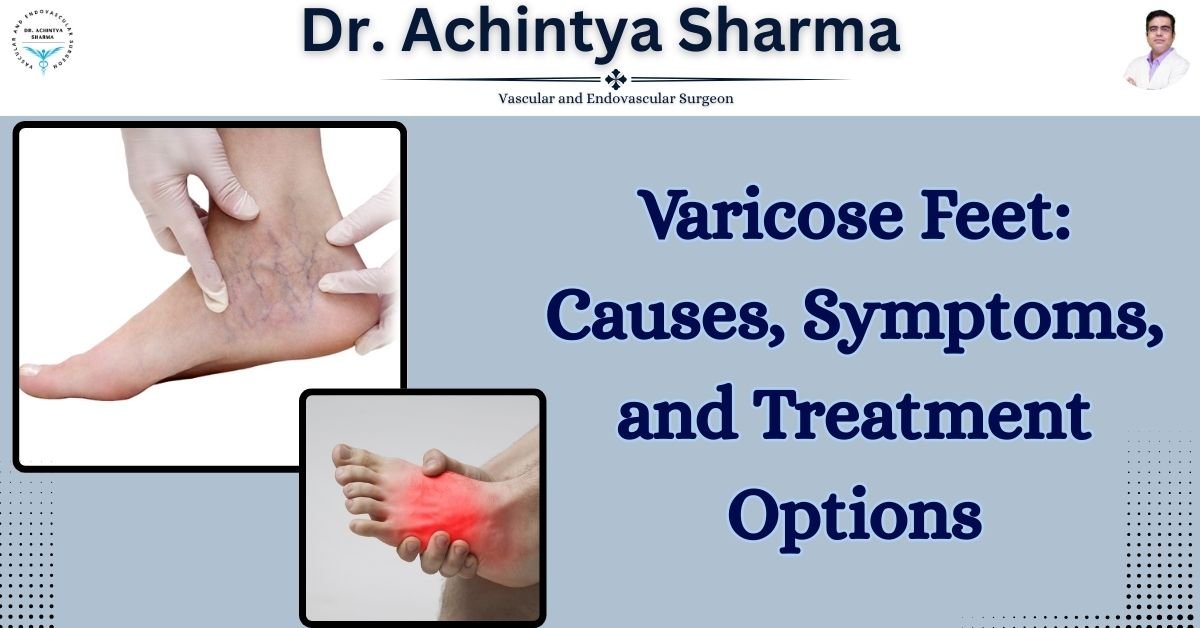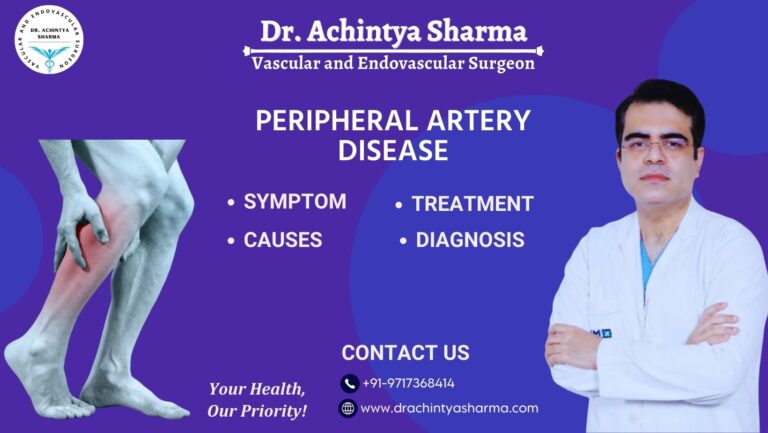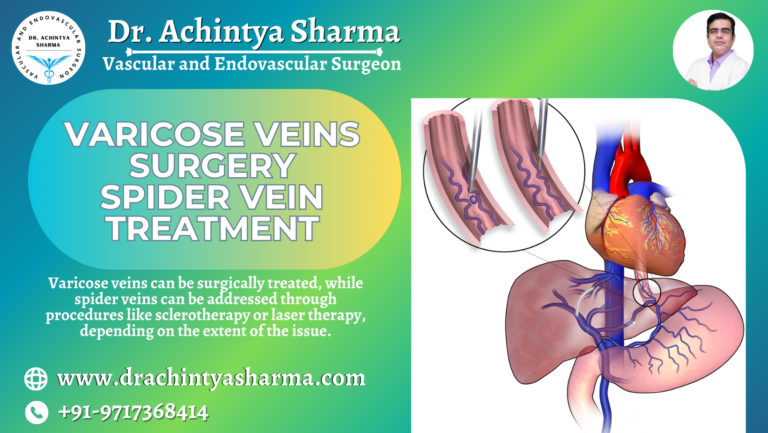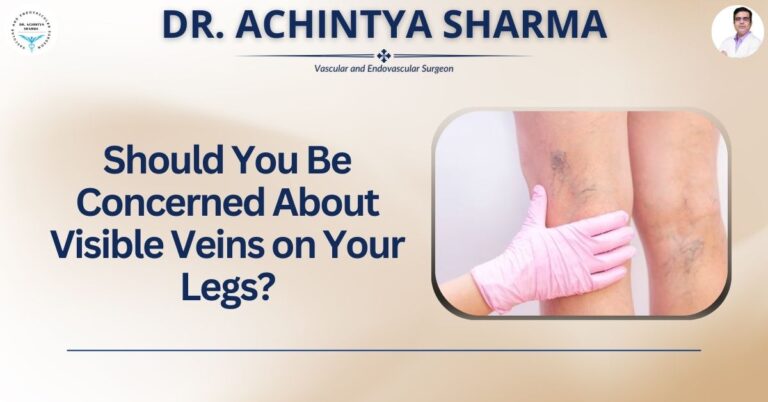Varicose feet are not only about appearance. They often signal underlying vein problems that can lead to pain, swelling, and long-term health issues. Many people ignore the early signs, thinking it’s only about appearance. But untreated varicose feet can affect your mobility, daily comfort, and even your vascular health. The good news is that effective treatments are available today, ranging from simple lifestyle changes to advanced medical procedures. In this blog, we’ll explain what varicose veins are, why they occur, their symptoms, and the treatment options available. By the end, you’ll know how to take timely action and protect your vein health.
Why Varicose Feet Shouldn’t Be Ignored
When the valves inside your veins fail to work properly, blood pools and creates varicose veins. What begins as a small issue can turn into serious vascular problems if left untreated. They can cause pain, cramps, and even skin changes. Ignoring them often means living with constant discomfort.
What Causes Varicose Feet?
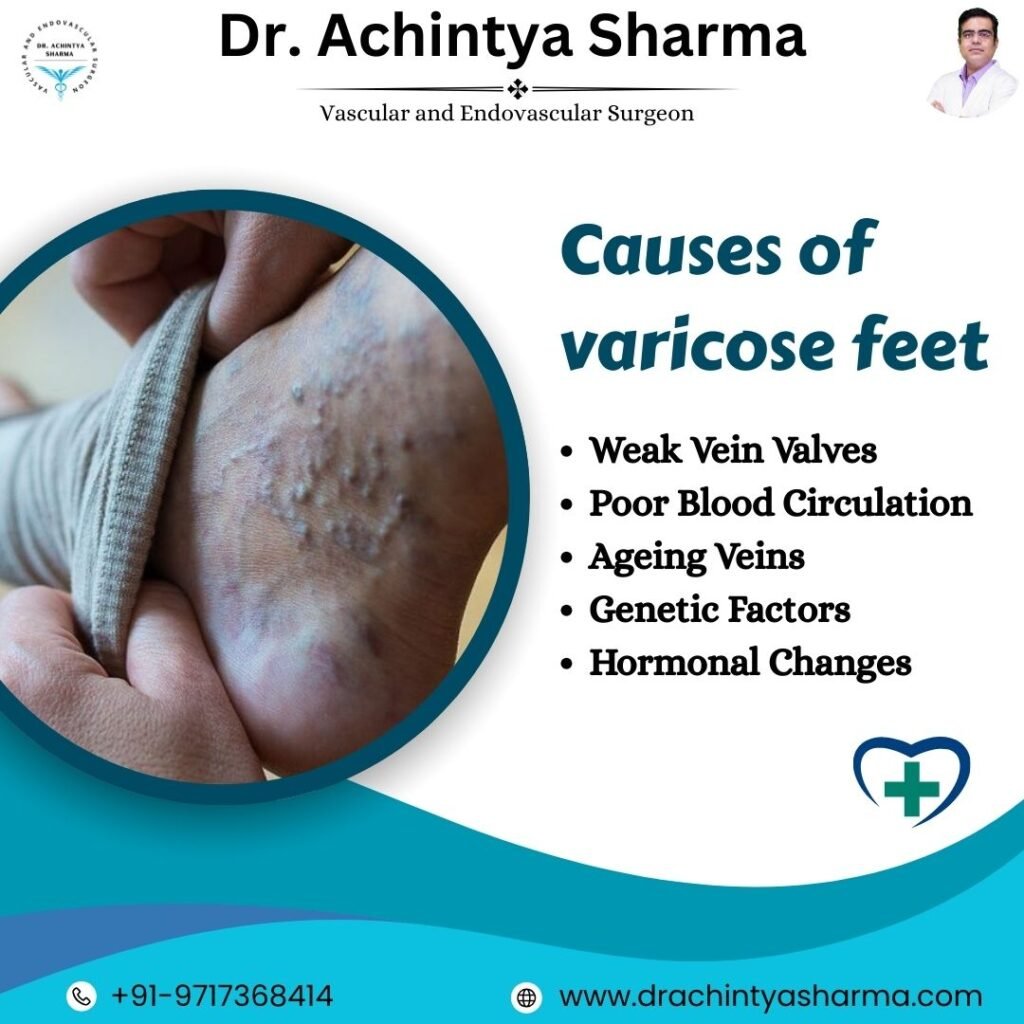
Several factors can increase the chances of developing varicose feet:
- Genetics – A family history of varicose veins makes you more prone to the condition.
- Lifestyle habits – Long hours of sitting or standing reduce circulation and increase pressure on your veins.
- Age – As we grow older, veins lose elasticity, making valve function weaker.
- Obesity – Extra weight adds strain on the veins in your legs and feet.
- Hormonal changes – Pregnancy, menopause, or use of birth control pills may contribute.
Understanding these causes helps in prevention and early diagnosis.
Recognizing the Symptoms of Varicose Feet
Early symptoms of varicose feet are often mild, but they worsen with time. Common signs include:
- Varicose veins usually show up as enlarged, rope-like, or twisted veins on the legs or feet.
- Heaviness or aching sensation in the feet.
- Swelling after standing for long periods.
- Itching or burning around the veins.
- Cramps at night.
- In advanced cases, skin discoloration or ulcers may appear.
Noticing these signs early makes treatment more effective. Consulting a vascular specialist like Dr. Achintya Sharma for timely diagnosis and effective care tailored to your needs.
Treatment Options for Varicose Feet
Fortunately, varicose feet can be managed with a combination of lifestyle changes and medical procedures.
1. Lifestyle Modifications
- Regular exercise improves blood flow.
- Elevating feet reduces swelling.
- Wearing compression stockings helps veins work efficiently.
- Maintaining a healthy weight lessens vein pressure.
2. Medical Treatments
If lifestyle changes don’t bring relief, doctors may suggest:
- Sclerotherapy – An Injection that closes damaged veins.
- Laser therapy – This painless method uses light energy to seal affected veins.
- Radiofrequency ablation – Uses heat to collapse and seal faulty veins.
- Surgery – In severe cases, surgical removal of damaged veins may be recommended.
With modern advancements, most treatments are minimally invasive, quick, and have short recovery times. Specialists like Dr. Achintya Sharma use advanced techniques to ensure safe and effective results.
Living with Varicose Feet: Prevention Tips
While treatments are effective, prevention is always better. Here are a few tips:
- Keep moving and don’t spend long periods sitting or standing still.
- Take short breaks to stretch your legs.
- Eat a balanced diet rich in fiber.
- Avoid wearing tight shoes or clothing.
- Keep your weight in check.
FAQs About Varicose Feet
1. What are varicose feet?
Varicose feet are swollen and twisted veins in the feet or legs caused by poor circulation and weak vein valves.
2. Are varicose feet dangerous?
While not always life-threatening, untreated varicose feet can lead to chronic pain, ulcers, and vascular complications.
3. Can exercise help with varicose feet?
Yes. Low-impact activities like walking, swimming, and yoga improve circulation and reduce symptoms.
4. At what point should I consult a doctor for varicose veins?
If you experience persistent pain, swelling, skin changes, or ulcers, consult a vascular specialist.
5. Who treats varicose feet?
A vascular surgeon or vein specialist, like Dr. Achintya Sharma, provides expert care for diagnosing and managing varicose veins
Conclusion
Varicose feet may start as a small discomfort, but they should never be ignored. They are a sign that your veins are under strain, and without timely treatment, they can worsen into painful complications. The good news is that effective treatments are widely available, from simple lifestyle changes to advanced medical procedures. By recognizing the symptoms early and consulting experts with the right care, with Dr. Achintya Sharma’s care, varicose feet are not only about appearance. They often signal underlying vein problems that can lead to pain, swelling, and long-term health issues. Many people ignore the early signs, thinking it’s only about appearance. But untreated varicose feet can affect your mobility, daily comfort, and even your vascular health. The good news is that effective treatments are available today, ranging from simple lifestyle changes to advanced medical procedures. In this blog, we’ll explain what varicose veins are, why they occur, their symptoms, and the treatment options available. By the end, you’ll know how to take timely action and protect your vein health.

